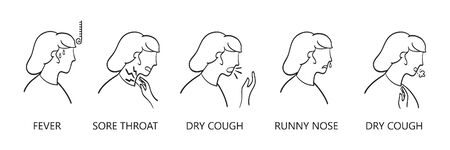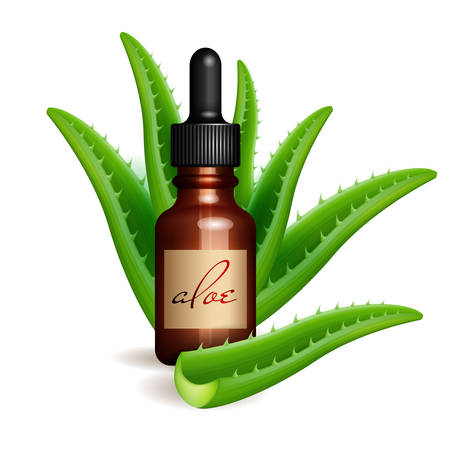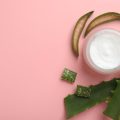1. Understanding Early Signs of Aging
Turning 30 is a major milestone, and while it comes with more confidence and self-awareness, its also the time when many women start noticing subtle changes in their skin. These early signs of aging may seem small at first, but understanding them can help you take control of your skincare routine before they become more noticeable.
What Changes Happen in Your 30s?
In your 30s, your skin’s natural ability to repair itself begins to slow down. Collagen production decreases, cell turnover becomes sluggish, and environmental damage from your 20s starts to show up. This doesn’t mean you need to panic—just that it’s the perfect time to be proactive about anti-aging care.
Common Early Signs of Aging
| Sign | Description |
|---|---|
| Fine Lines | Usually appear around the eyes (crow’s feet) and mouth due to repetitive facial movements and reduced collagen. |
| Dullness | Slower cell turnover can lead to a lackluster complexion that doesn’t reflect light as it used to. |
| Loss of Elasticity | The skin may feel less firm or begin to sag slightly, especially around the jawline and cheeks. |
| Uneven Skin Tone | Sunspots or hyperpigmentation from past sun exposure may become more visible. |
Why Now Is the Right Time for an Anti-Aging Routine
Your 30s are the sweet spot for starting an effective anti-aging regimen. At this stage, your skin is still resilient and responds well to active ingredients. By incorporating targeted skincare now, you can delay deeper wrinkles, maintain your glow, and protect your skins health for the long run.
2. Retinol: The Gold Standard in Anti-Aging
Retinol is often called the gold standard in anti-aging skincare — and for good reason. If youre in your 30s, this powerhouse ingredient can help you stay ahead of fine lines, uneven skin tone, and loss of firmness. Lets break down what makes retinol so effective and how to start using it without irritating your skin.
Why Retinol Matters in Your 30s
In your 30s, your skins natural collagen production starts to slow down. This can lead to the first visible signs of aging like fine lines, dullness, and changes in texture. Retinol helps by encouraging cell turnover and stimulating collagen production. It also unclogs pores and smooths rough patches, giving your skin a more youthful glow.
Main Benefits of Retinol
| Benefit | How It Helps |
|---|---|
| Boosts Collagen | Helps firm the skin and reduce fine lines over time |
| Smooths Texture | Improves skin tone by speeding up cell turnover |
| Minimizes Wrinkles | Softens the appearance of fine lines and prevents new ones from forming |
How to Introduce Retinol Into Your Routine
If youre new to retinol, its important to start slow to avoid redness or flaking. Heres a simple way to ease it into your routine:
Beginner’s Guide to Using Retinol
- Start with a low concentration: Look for products with 0.25% or 0.5% retinol.
- Use it at night: Retinol can make your skin more sensitive to sunlight, so apply it before bed.
- Apply every 2-3 nights: Give your skin time to adjust before using it daily.
- Add moisturizer: Use a gentle moisturizer after applying retinol to reduce dryness.
- Avoid mixing with exfoliants: Don’t use with AHAs/BHAs until your skin builds tolerance.
A Quick Tip: The “Sandwich” Method
If you have sensitive skin, try the “retinol sandwich” method — apply moisturizer before and after retinol. This creates a buffer that helps reduce irritation without sacrificing results.
Your 30s are the perfect time to get serious about prevention, and retinol is one of the most effective tools you can add to your skincare arsenal. Just remember: consistency is key, and patience pays off when it comes to seeing long-term results.

3. Vitamin C: Brighten and Protect
Vitamin C is a must-have ingredient in your anti-aging skincare routine, especially if youre in your 30s and starting to notice early signs of aging like dullness, uneven skin tone, or fine lines. This powerful antioxidant works hard to protect your skin from environmental stressors while giving you that healthy glow.
How Vitamin C Works for Your Skin
Every day, your skin is exposed to free radicals—unstable molecules caused by pollution, UV rays, and even stress. These can damage collagen and speed up the aging process. Vitamin C neutralizes these free radicals before they harm your skin. When used daily in the morning, it helps brighten your complexion and supports natural collagen production.
Why Women in Their 30s Need It
In your 30s, your skin’s natural repair process starts to slow down. Vitamin C steps in to boost radiance and keep your skin looking fresh and youthful. Its also great for fading dark spots from sun damage or acne scars, which tend to become more noticeable around this age.
Benefits of Using Vitamin C Daily
| Benefit | What It Does |
|---|---|
| Brightens Skin | Gives a radiant, glowing look by reducing dullness |
| Evens Out Skin Tone | Fades dark spots and discoloration over time |
| Protects Against Free Radicals | Shields skin from pollution and UV-related stress |
| Boosts Collagen Production | Helps reduce the appearance of fine lines and wrinkles |
How to Use It
The best time to apply Vitamin C serum is in the morning after cleansing and before moisturizing. Look for products with L-ascorbic acid (the most effective form of Vitamin C) at concentrations between 10%–20% for maximum results without irritation. Don’t forget to follow up with sunscreen—Vitamin C and SPF are a power duo against premature aging!
4. Hyaluronic Acid: Hydration is Key
When it comes to anti-aging skincare in your 30s, hydration isn’t just a bonus — it’s essential. One of the most effective ingredients for locking in moisture and keeping your skin looking plump and youthful is hyaluronic acid (often abbreviated as HA). This powerful humectant can hold up to 1,000 times its weight in water, making it a go-to for maintaining that dewy, fresh-faced glow.
Why Hyaluronic Acid Matters in Your 30s
In your 30s, your skin begins to produce less collagen and natural moisture levels start to drop. This can lead to early signs of aging like fine lines, dullness, and a loss of firmness. By incorporating hyaluronic acid into your daily routine, youre helping your skin retain much-needed moisture — which not only helps smooth out fine lines but also gives your complexion a fuller, more supple look.
Benefits of Hyaluronic Acid
| Benefit | What It Does |
|---|---|
| Deep Hydration | Attracts and holds moisture in the skin |
| Plumps Fine Lines | Helps reduce the appearance of early wrinkles |
| Boosts Skin Elasticity | Keeps skin feeling firm and bouncy |
| Improves Texture | Smooths rough or dry patches on the face |
| Supports Skin Barrier | Protects against environmental stressors |
How to Use It in Your Routine
Add a hyaluronic acid serum to clean, slightly damp skin before applying moisturizer. This helps seal in hydration. You can use it morning and night — just make sure to follow with an SPF during the day.
Pro Tip:
If you live in a dry climate, always apply hyaluronic acid under a rich moisturizer to avoid drawing moisture out from deeper layers of your skin.
5. Sunscreen: Your Daily Non-Negotiable
When it comes to anti-aging, sunscreen isnt just a beach-day essential—its your skins everyday armor. For women in their 30s, consistent sun protection is one of the most effective ways to prevent premature aging caused by UV exposure. Think fine lines, dark spots, uneven tone, and loss of elasticity—all of which are accelerated by unprotected sun exposure.
Why Sunscreen Matters Every Day
Even on cloudy days or when youre indoors near windows, UV rays can still reach your skin. Over time, this adds up and contributes to visible signs of aging. Wearing sunscreen daily helps protect your skins collagen and prevents pigmentation from getting worse.
How to Choose the Right SPF
Not all sunscreens are created equal. Heres what to look for:
| Feature | Why It Matters |
|---|---|
| SPF 30 or higher | Blocks around 97% of UVB rays; ideal for daily use |
| Broad-spectrum | Protects against both UVA (aging) and UVB (burning) rays |
| Water-resistant | Better staying power if you sweat or get wet |
| Sensitive-skin friendly | Mild formulas with zinc oxide or titanium dioxide reduce irritation risks |
Tips for Reapplying Sunscreen with Makeup On
One of the biggest challenges is reapplying sunscreen during the day—especially if youre wearing makeup. Here are a few easy solutions:
- Sunscreen setting spray: A quick mist refreshes your face and re-ups your protection.
- Cushion compacts with SPF: These let you pat on coverage without disturbing makeup.
- Powder sunscreen: Great for touch-ups and controlling shine throughout the day.
- Sunscreen sticks: Glide over high points like cheeks, nose, and forehead without messing up your look.
Quick Tip:
Set a reminder on your phone to reapply sunscreen every 2 hours when youre outdoors—it’s easy to forget!
Your Anti-Aging Routine Isnt Complete Without Sunscreen
If youre investing in serums, moisturizers, and night creams but skipping sunscreen, youre missing the most critical step. Think of it as insurance for all your other skincare efforts—because no ingredient works well if your skin is constantly exposed to UV damage.


